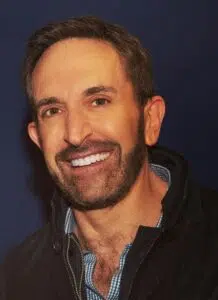Ed Dept. Hires Book Ban Czar to Monitor Escalating Challenges Over Content
The move is likely to spur further debate over who has the power to restrict students’ access to library materials.

Get stories like this delivered straight to your inbox. Sign up for The 74 Newsletter
Updated
With schools continuing to find themselves caught in emotional debates over students’ access to controversial books, the U.S. Department of Education has hired a new official to oversee its response to content challenges and take action if it finds that removing materials violated students’ civil rights.
Matt Nosanchuk, a former Obama administration official and nonprofit leader whose work has focused on the Jewish and LGBTQ communities, started his job Monday as a deputy assistant secretary in the Office for Civil Rights. In the coming weeks, he’ll lead training sessions for schools and libraries on the shifting legal landscape related to restricting books available to students. The American Library Association will host the first session Sept. 26.
“Across the country, communities are seeing a rise in efforts to ban books — efforts that are often designed to empty libraries and classrooms of literature about LGBTQ people, people of color, people of faith, key historical events and more,” a department official said in an email to reporters Thursday. “These efforts are a threat to student’s rights and freedoms.”

The move comes as conservative groups continue to push for the removal of books they argue are inappropriate for students and GOP leaders take action against districts with books that include sexual content or discuss historical racism.
“The Department of Education has decided to lawlessly leverage its civil rights enforcement power to coerce school districts into keeping pornography in their libraries,” said Max Eden, a research fellow at the right-leaning American Enterprise Institute.
PEN America, an advocacy organization, found almost 1,500 instances of book bans affecting 874 unique titles last school year. In many cases, parents complained that the books were too advanced or graphic for younger readers. But civil rights officials say removing a book just because it has LGBTQ characters or discusses racial violence is a form of discrimination.
In a first-of-its-kind resolution in May, the department found that a Georgia district may have created a “hostile environment” when it withdrew several books with LGBTQ and Black characters following parent complaints. The agreement required the Forsyth County Schools to notify students of its library book review process and survey middle and high school students about harassment based on race or sex and whether they feel comfortable reporting it.
Some parent leaders applauded the appointment.
“Leadership and energy on this has been a long time coming,” said Keri Rodrigues, president of the National Parents Union. She hopes “to see real action and resources for children, parents and families who have been caught in the crossfire of this hate-filled political campaign for far too long.”
In Florida, for example, a new law states that districts must remove books that contain “sexual conduct” if the material is determined to be inappropriate. Those who disagree with a district’s decision to keep a book on the shelves can ask for a review by a special magistrate.
“That’s one more level of control from the state to overturn what they don’t like,” said Melissa Erickson, executive director of Alliance for Public Schools, a nonprofit. She’s expressed concerns about the ability of conservative-leaning school boards to dictate what’s taught in the classroom.
In 2021, some parents in the Williamson County, Tennessee, district sought to remove the children’s book “Ruby Bridges Goes to School: My True Story,” an autobiography about Bridges’s experience as the first Black student to desegregate an all-white school in New Orleans. They objected to the word “injustice” and a reference to “a large crowd of angry white people.”
In Oklahoma, the state adopted a rule that said officials can downgrade a district’s accreditation if it has books with “sexualized content” that an average person might find unfit for students. The rule followed state Superintendent Ryan Walters’s claims that some districts’ libraries included books such as “Gender Queer” and “Flamer” that feature graphic illustrations of sex. In several cases, the books had already been removed.
Some advocates say they’ve been unfairly criticized for supporting the rights of parents to restrict their children from access to explicit material.
“When people ask questions they’re crucified,” Nicki Neily, president and founder of Parents Defending Education, testified Tuesday in a Congressional hearing. “Pretending that objections to minors accessing explicit sexual content is a threat to liberty and literature is a straw man and a distraction from real concerns about the quality of children’s education and whether students are safe in school.”
Margaret Crespo, superintendent in residence for ILO Group, an organization that supports women leaders in education, said Nosanchuk’s hiring is likely to rankle those who think the federal government should stay out of local school board matters.
She resigned in August as superintendent of the Laramie County School District 1, in Cheyenne, Wyoming, where board members pushed for a policy in which books with sexually explicit content would be off limits unless to children without parents’ prior permission. The school board is still debating the proposal.
But Crespo acknowledged the department’s assistance could be helpful to districts.
“Many don’t have policy or state statute to guide the conversation,” she said, “and are struggling to meet the needs of all students.”
Get stories like these delivered straight to your inbox. Sign up for The 74 Newsletter

;)
